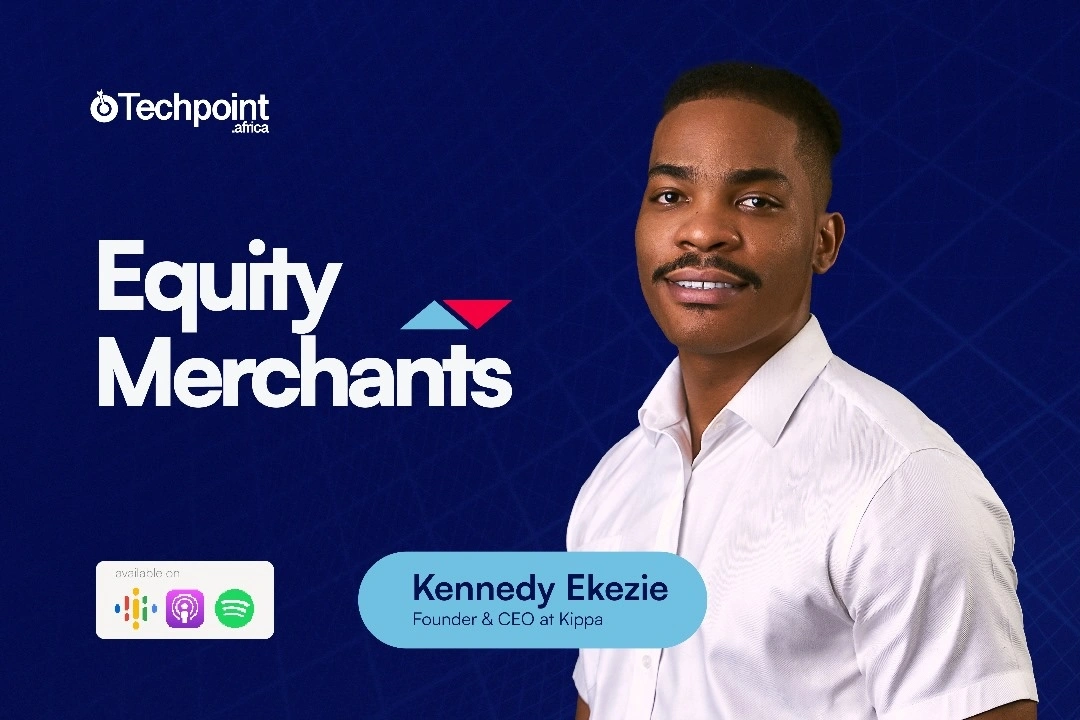Kennedy Ekezie may be 25, but he has lived a life only a few people dream of. At 19, he graduated from the University of Calabar with a Bachelors degree in Philosophy. As a student, he was a member of the debate team and founded a council to fight for women’s rights at 16. That earned him recognition in the form of the Queen’s Young Leaders Award and a Young African Leaders Initiative fellowship.
Straight out of school in 2018, he joined Accenture, but soon left after landing a scholarship at Peking University, China. After two years in Beijing, he joined a social media upstart that was exploring expansion plans beyond China. That social media upstart was TikTok, and he was on the team that led its expansion into Africa.
In 2021, along with his Co-founders, Duke Ekezie and Jephthah Uche, he started Kippa, a financial management startup for SMEs that has since raised more than $10 million, but a year earlier, the co-founders had come up with and discarded several business ideas before settling on Kippa.
Settling on Kippa
Lagos may be Nigeria and Africa’s startup capital, but it also has the highest cost of living in Nigeria. For a bunch of guys in their early twenties accustomed to certain standards, living in the city would burn a hole in their pockets, so they all decided to move to Uyo, a city in the Southern part of Nigeria. Without the expenses and distractions of Lagos, they hoped to come up with a great business idea.
“Now that I talk about it, it sounds like it was a very logical thought-through process. But for us, it was a very easy decision. We audited about five cities. It wasn’t going to be Lagos. It wasn’t going to be Abuja. It definitely was not going to be Port Harcourt or Enugu and Uyo was the next best thing on that list.”
In Uyo, they brainstormed different business ideas, including an online platform where people could lend out clothes they were not wearing. That business lasted less than 24 hours before they moved on. The idea they finally settled on was called Kippa, a financial management app for African SMEs.
“We said we were going to travel across some of the commercial nerve centres in Nigeria to meet small businesses. We went to Aba and Lagos, spent a lot of time on the ground in Uyo, and went to Owerri, and for us, it was ‘Let’s see how businesses work’ and what problems they have that we can solve for them,” he said on a recent podcast.
From spending time with the SMEs, they discovered that they all reconciled business accounts manually and figured they could digitise the process. There were also a few startups with similar models in places like Pakistan and India, and they sent messages to the founders and senior executives to learn how their businesses worked. Once, they gatecrashed an accounting seminar for small businesses to tell attendees they were building an app to automate their accounting processes.
Insights from building a financial app for African SMEs
There are 44 million micro, small, and medium enterprises in sub-Saharan Africa responsible for 80% of jobs in the region. However, these businesses typically do not use technology in their operations.
A report by the World Bank and the International Finance Corporation revealed that less than 7% of businesses in Africa used any form of technology. This is despite higher productivity, sales, and employees reported by those who do.
But for Ekezie, when thinking of small businesses and their use of technology, a distinction must be made from how digitally savvy individuals would use technology.
“Most small businesses use WhatsApp, Facebook, and Instagram to sell, to communicate with their suppliers and customers. That’s technology,” he said, “50, 70 years ago, it was not a foregone conclusion that businesses needed electricity to operate. But now no business can really work without that.”
Ekezie’s thoughts echo the growth of social commerce in Africa. Since 2020 when the pandemic forced people indoors, more SMEs have taken advantage of social media to attract customers and sell their products. Ninety-two per cent of Kenyan SMEs leveraged social commerce (PDF) to drive sales, while the majority of eCommerce activities in Equatorial Guinea, São Tomé and Príncipe, Chad, and the Central African Republic were driven by social commerce (PDF).
With more than 500,000 users, he insists that Kippa operates in a nascent market and has more room for growth.
“While today their use of technology probably touches mostly suppliers and customers at the very minimal level, there’s a lot of room for that to be deepened, and to build for the other stakeholders that they work with, but also bring all of those together. That’s where we think the opportunity truly lies.”
Build a great business and investors will come

So much has changed about the fundraising process in the past two years. Frequent fundraising announcements have been replaced by the odd announcement.
Still, many startup founders hope they’ll raise money from venture capitalists. With $11.6 million raised across two rounds, Ekezie has some experience raising venture capital, but he claims it was not an easy process.
“The process in and of itself is challenging, especially if you’re doing it for the first time. You don’t know what to expect, and you don’t know how long it’s going to take. There’s just a lot of unknowns, and for me, and I would say most founders who like to have control over things, over processes, it’s just too many variables that are outside your hand.”
Initially, the team tried to raise some money, but when that didn’t work out, they focused on building Kippa. They soon started seeing traction and attracted the attention of some investors. Ekezie credits this to something he heard Shola Akinlade, Co-founder and CEO of Paystack, say.
“I heard this from Shola of Paystack; as a founder, your job is to build your company, to build your business, and the investor’s job is to find you. I think it’s cliche, but things are cliche for a reason because [they’re] so deeply true.”
Although he didn’t have a smooth fundraising process, Ekezie says he has no regrets about how the process turned out and sees them as necessary mistakes.
“A lot of the mistakes were process and tactical mistakes. Structuring the round, for example, saying yes before getting feedback from everyone you’ve spoken to. So it was just some of those tactical errors that most people make during initial rounds of fundraising.”
Quizzed on the qualities he’ll look for in an ideal investor, he says they must be able to contribute to subsequent fundraises and help founders the way they want to be helped.
“I feel like the averagely good investor is the one who sends capital and just shuts up after that, so for everyone who does anything else, spends time on a monthly or quarterly basis with you, that’s above average. The best investors learn [how they can be valuable to you] without you telling them through interactions with you and plug those gaps by themselves.”
Structuring mutually beneficial partnerships
Two heads, they say, are better than one, and in business, two businesses are often better than one. However, many businesses that get into partnerships do not realise the gains they hope for. Ekezie advises founders considering partnerships to evaluate whether the partnership creates value for the business or its customers.
“Every partnership exists to solve a problem that we’ve pre-identified, and we’re not as opportunistic with our partnerships. There’s a very clear need, and we spell it out.”
Considering how deeply entrenched SMEs are in the African economy, there’s a consensus that startups building tools for this segment will see significant success. But with many startups entering the space, there’s the danger of too many players competing for a small pie and making it harder to have any clear winners. However, Ekezie holds a different opinion.
“When you look at it, all startups are running different experiments. There’s definitely no clear winner yet. I do not think we’re at the point where competition can kill any startup. All of the startups that have shut down did not shut down because of competition, and we’re not going to see any startups that would die because of competition over the next 10 years.”
As we rounded up our conversation, I asked Ekezie what his tips are for first-time founders, and his first was choosing the right team.
“Everyone says this, but it’s so important that the team you hire, especially the first few people who join the team that you pay a lot of attention to them. Spend a lot of time before you make those decisions, and when you bring them in, try to keep them as long as possible.”
Business decisions can often be high-stakes decisions, and he explains that founders are better off making them quickly.
“Make decisions quickly no matter how difficult they are. You may be wrong, but even if you’re wrong, you’ve integrated some sort of new knowledge into your knowledge structure, and that way you can make decisions faster when you encounter similar situations.”
Finally, he adds that founders must learn how to manage bad news and failure.
“The journey is definitely non-linear, and you have to get very good at communicating bad news to yourself, to your employees, to all other stakeholders and not allowing that [to] debilitate you.”






